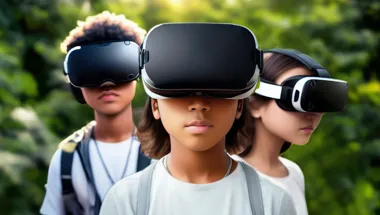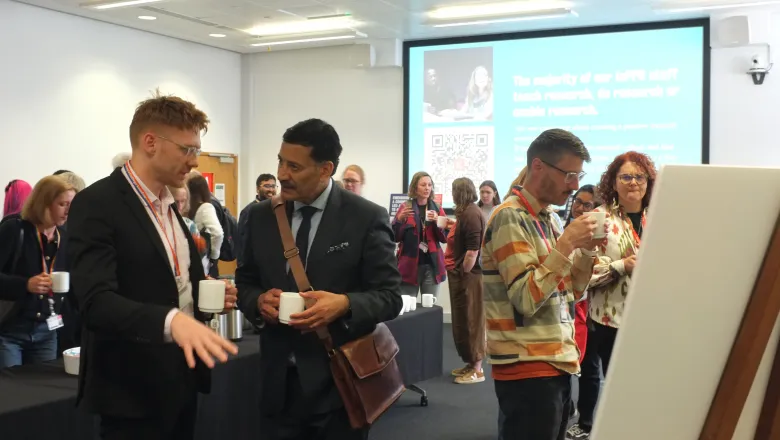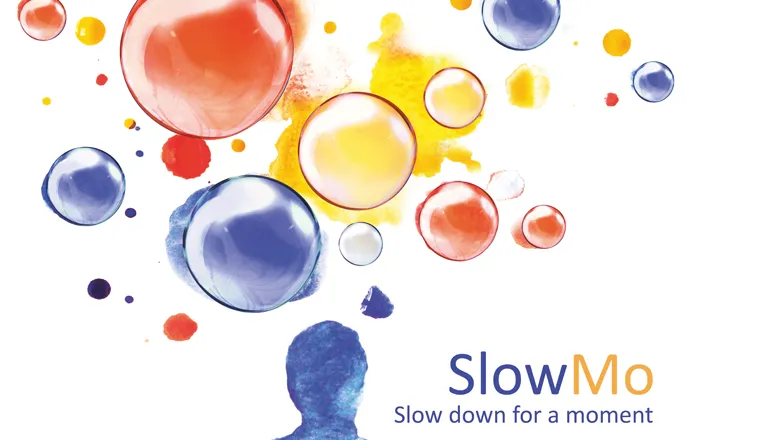
Dr Amy Hardy
Reader in Clinical Psychology
Research interests
- Psychology
Contact details
Biography
Dr Amy Hardy is a Reader in Clinical Psychology based in the Department of Psychology and the Trauma-informed Care Lead at the Psychological Interventions for Outpatients with Psychosis (PICuP) Clinic. Her research investigates the role of psychological processes in post traumatic stress in psychosis. She is interested in the development, testing and implementation of trauma-informed practice and trauma-focused CBT for psychosis. Amy also collaborates with inclusive designers and technologists on digital projects to enhance the usability and outcomes of psychological ways of managing distress and improving quality of life.
Research interests
- Trauma and psychosis
- Cognitive-behavioural therapy for psychosis
- Digital therapies for psychosis
Research

IoPPN Virtual Reality Lab
The IoPPN Virtual Reality Research Lab (VR Lab) is a world-leading multidisciplinary group dedicated to VR based research, assessment and treatments to improve mental health, enhance well-being and promote resilience.

UNIQUE Research Group
UNIQUE Research group carries out a range of sudies involving people who experience persistent, full-blown psychotic experiences but are not in need of care
AVATAR2
AVATAR therapy offers a new approach to working with distressing voices (auditory hallucinations), using digital technology to allow ‘face-to-face’ dialogue between the voice-hearer and a computerised representation of their voice (the avatar). We are now taking this forward in the AVATAR2 trial.
News
SloMo featured in National Gallery of Victoria exhibition
The digital therapy for paranoia in psychosis was spotlighted for its inclusive, people-centred design.

Multi-site trial uses digital avatars to effectively reduce distressing voices in psychosis
A novel therapy using computer-generated avatars has found to be an effective way of helping people with psychosis reduce the distress and frequency with...
Demystifying Impact 2024
IoPPN researchers and NHS Trusts staff discussed the effect and importance of partnerships and collaborations at this year's annual Demystifying Impact event...

AVATAR and SloMo digital therapies for psychosis recommended for use in NHS
The National Institute for Health and Care Excellence (NICE) has recommended two digital health technologies for psychosis developed at the Institute of...
£1.3 million Wellcome funding awarded to SlowMo
SlowMo, an inclusive, digitally supported therapy for paranoia, has been awarded £1.3 million funding by Wellcome to scale up in three NHS Trusts.

Paranoia therapy app SlowMo helps people “slow down” and manage their fears
A clinical trial has revealed that a new digitally supported therapy effectively supports people to manage paranoia to help them in their daily lives

Spotlight
Talking back: the power of digital avatars in psychosis therapy
AVATAR therapy has shown significant promise in reducing the frequency and impact of distressing voices for those with a diagnosis of schizophrenia. Working...
Research

IoPPN Virtual Reality Lab
The IoPPN Virtual Reality Research Lab (VR Lab) is a world-leading multidisciplinary group dedicated to VR based research, assessment and treatments to improve mental health, enhance well-being and promote resilience.

UNIQUE Research Group
UNIQUE Research group carries out a range of sudies involving people who experience persistent, full-blown psychotic experiences but are not in need of care
AVATAR2
AVATAR therapy offers a new approach to working with distressing voices (auditory hallucinations), using digital technology to allow ‘face-to-face’ dialogue between the voice-hearer and a computerised representation of their voice (the avatar). We are now taking this forward in the AVATAR2 trial.
News
SloMo featured in National Gallery of Victoria exhibition
The digital therapy for paranoia in psychosis was spotlighted for its inclusive, people-centred design.

Multi-site trial uses digital avatars to effectively reduce distressing voices in psychosis
A novel therapy using computer-generated avatars has found to be an effective way of helping people with psychosis reduce the distress and frequency with...
Demystifying Impact 2024
IoPPN researchers and NHS Trusts staff discussed the effect and importance of partnerships and collaborations at this year's annual Demystifying Impact event...

AVATAR and SloMo digital therapies for psychosis recommended for use in NHS
The National Institute for Health and Care Excellence (NICE) has recommended two digital health technologies for psychosis developed at the Institute of...
£1.3 million Wellcome funding awarded to SlowMo
SlowMo, an inclusive, digitally supported therapy for paranoia, has been awarded £1.3 million funding by Wellcome to scale up in three NHS Trusts.

Paranoia therapy app SlowMo helps people “slow down” and manage their fears
A clinical trial has revealed that a new digitally supported therapy effectively supports people to manage paranoia to help them in their daily lives

Spotlight
Talking back: the power of digital avatars in psychosis therapy
AVATAR therapy has shown significant promise in reducing the frequency and impact of distressing voices for those with a diagnosis of schizophrenia. Working...
